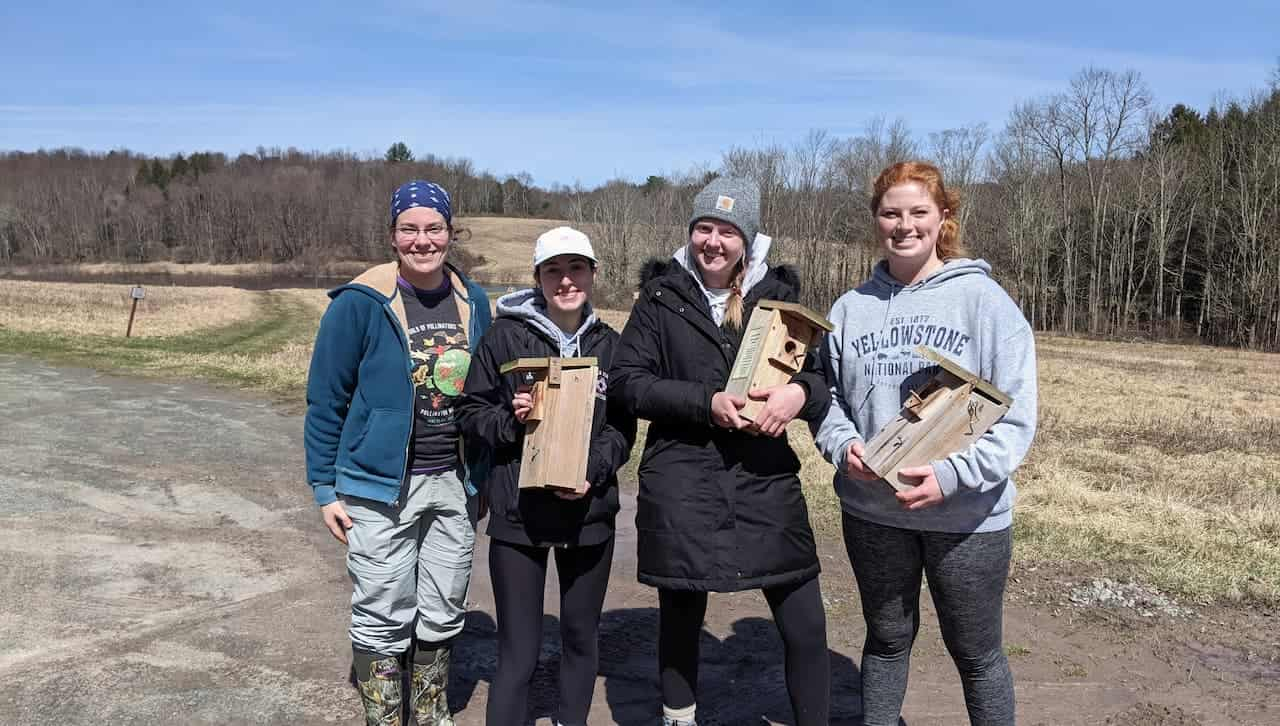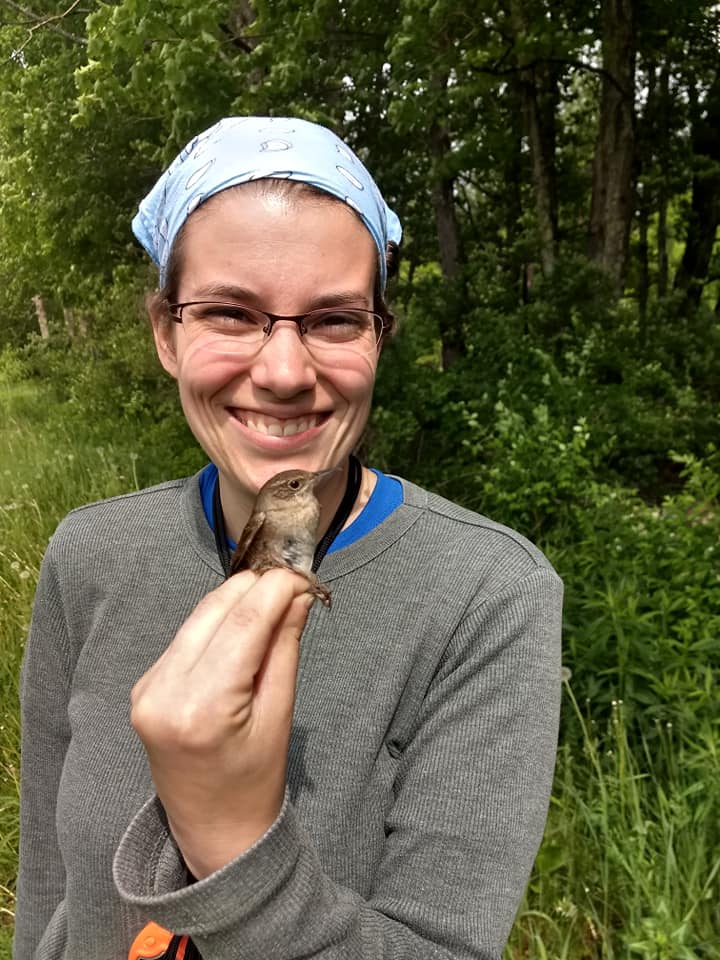FACULTY PROFILE: A Conversation with Dr. Cara Krieg

By: Kelly Nee '23, student correspondent
As assistant professor in The University of Scranton biology department since 2018, Cara A. Krieg, Ph.D., uses a local population of wild songbirds to understand social behavior and communication.
Dr. Krieg is originally from Woodstock, Illinois. She received her B.A. from Grinnell College, and Ph.D. from Michigan State University, with a dual degree in Zoology and Ecology, and Evolutionary Biology and Behavior.
""I am one of a handful of field biologists in the department. This means that I do most of my research work outside rather than in a laboratory. Students in my lab get hands-on experience with wild animals living in their natural environment," said Dr. Krieg.
She discusses what she brings to the biology department, the University's Jesuit mission, and her current research in the field of bird behavior.
"I am a behavioral ecologist who uses many techniques from population ecology. This means I spend a lot time watching the behavior of wild birds, and I know a lot about each individual bird in my population. From a teaching perspective, I bring an expertise in animal behavior, animal communication, and evolutionary theory."
What are your current research interests?
"I am broadly interested in how ecological and evolutionary forces shape social behavior in wild animals. My lab works with a wild population of house wrens (a native songbird) nesting at Lackawanna State Park. My work is currently focused on two behaviors that have historically been understudied in female animals: female-female aggression and female bird song.
Some work of the past couple summers has focused on (1) whether more aggressive females face longer term costs to survival or health, (2) whether males adjust their reproductive effort when they are mated to a more competitive, aggressive female, (3) how females use their song during naturally occurring territorial conflicts, and (4) how female physiology influences female song production and how this differs from what happens in males."
How do you think the university's Jesuit mission has impacted your time as a professor?
"The culture of ‘cura personalis’ has definitely impacted my lived experience in this job. I care about my students’ success, both in the classroom and then as humans. It’s refreshing to be at an institution where this type of work is valued and encouraged versus being in a competitive environment where people are focused on tearing each other down.
I also think the University’s Jesuit focus probably impacts the type of student I have in my classroom. I’ve found that students here tend to be more motivated by social justice issues than they have at other institutions where I’ve taught. It’s much easier to teach about aspects of environmental science that impact human society when I know I’m not speaking to deaf ears."
What location on campus brings you inspiration?
"I’m a big fan of Loyola Science Center. I love how the windows are such a big part of the design. I enjoy being able to look out my office window and see the plants and birds, even if I am still working inside."
How would you describe the culture of your department?
"Collaborative. My colleagues are always willing to lend lab equipment, teaching materials, or expertise when someone asks. Although we might disagree on the exact solutions, I think we all agree on what is most important. I think this makes for a healthy department."
What IS your strength as an instructor?
"I'm a big proponent of active learning. Students in my lecture courses can often be found having discussions or working on activities in addition to listening to lectures. My hope is that this makes the science easier to learn and more accessible to those who might find a science course intimidating. At my heart, I’m a big science nerd. I think that enthusiasm is infectious. I try to project that enthusiasm when I’m teaching my courses. My hope is that students leave a little more excited about the biology than when they arrived."
What is your favorite comment from a student that you’ve ever received on a course evaluation?
"Dr. Krieg was an awesome professor from start to finish and made me feel excited about and engaged in science material for the first time in my academic career at any level. She was passionate about her subject matter and did an excellent job of communicating content and expectations with students. I would recommend her and any of her classes to any student at the U.”

Get to Know Dr. Cara A. Krieg
"The Office is my go-to show when I’ve had a stressful day. (This was true even before I took a job in Scranton, PA!)"
"I grew up in a very musical family, so my music tastes are quite eclectic. Here’s a random smattering of things I enjoy: Cake, Iron and Wine, Jain, Sarah Jarosz. I’ve also sung with choirs for most of my life, so I enjoy a good choral arrangement. Eric Whitacre is one of my favorite composers. It’s probably not a coincidence that I now research bird songs!"






